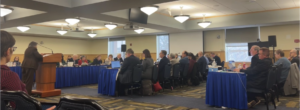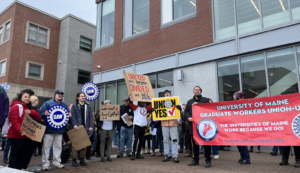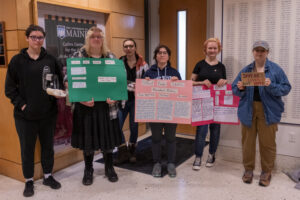On Saturday, Oct. 7, around 6:30 a.m., militant group Hamas launched a surprise attack on Israel, resulting in the deaths of over 1,400 Israelis and the injuries of thousands more according to the most recent recovery mission numbers. Since then, over 4,600 Palestinians have died, with approximately 14,000 wounded. Nearly half a million Palestinians have been displaced from their homes from resulting Israeli airstrikes.
Roughly 2,200 rockets were fired and Hamas militants infiltrated Southern Israel.
A key site of the devastating massacre was the Re’im (“Supernova Sukkot Gathering”) music festival that was being held in southern Israel in celebration of Sukkot, a Jewish holiday. What some festival goers first perceived as fireworks, ended up being the flashes of rockets that would signal the start of what has since been recognized as the deadliest event for Jews since the Holocaust, as well as the worst day in the country’s history.
Israel’s Prime Minister, Benjamin Netanyahu, declared the country to be at war before noon that same day, stating, “This is not a so-called military operation, not another round of fighting, but war.”
Tensions between Israel and Palestine have resulted in back-and-forth bouts of conflict since the end of the nineteenth century, after the United Nations adopted Resolution 181 in 1947, effectively separating Palestine into Arab and Jewish states. It has been estimated that 60% of Palestinians support armed attacks within Israel as a means of ending Israeli occupation. About 70% have also expressed the perspective that a two-state solution is no longer possible after the expansion of Israeli settlements in Palestine.
Many United States officials expressed support for Israel, a key ally of the U.S. in the Middle East region.
Secretary of State Antony Blinken said on Oct. 7, “The United States unequivocally condemns the appalling attacks by Hamas terrorists against Israel, including civilians and civilian communities. There is never any justification for terrorism. We stand in solidarity with the government and people of Israel, and extend our condolences for the Israeli lives lost in these attacks.”
Since the attack, protests have occurred around the world, with perspectives in support of both Israel and Palestine interests over many decades of conflicts and grievances experienced between the two. Israel has also launched offensive responses, with an estimated 4,300 Palestinian lives lost so far according to the Palestinian health ministry.
These counterattacks are just the start of the strikes and ground operations Israel intends to carry out. Civilians in Gaza have also been deprived of critical resources since the initial attack on Israel, with blockades that have prevented Palestinians from fleeing and humanitarian aid from entering. The UN has described the lack of water and fuel in Gaza as “a matter of life and death.”
Israel officials have warned Palestinians to leave northern Gaza, as Hamas controls this territory and its operatives are the primary targets of Israel’s military response. Aid workers have described the current conditions in Gaza as “a complete catastrophe” in the aftermath of the initial counterattacks.
Egypt has faced serious international pressure to open up a humanitarian corridor through the Rafah Gate, the only crossing between Egypt and the Gaza Strip, to allow passage for fleeing Gazans, Americans, and other civilians who now remain vulnerable in the aftermath of the attacks. Israel Defence Forces let up on military operations along the evacuation route for a limited three-hour window before seeking to resume its counterattack on Hamas with “an even greater force” on Sunday, Oct. 15.
Shortly after noon on Sunday, Israel Defense Forces Lt. Col. Peter Lerner provided an update on his country’s response, stating, “We are currently striking Hamas in its entirety…We did not ask for this war, but we will win it.”
Those distressed or in need of assistance in light of the recent violence between Israel and Hamas are welcomed to contact the UMaine Dean of Students office at 207.581.1406, the Counseling Center at 207.581.1392, the Office of the Provost at
207.581.1547, the Office of Diversity and Inclusion at 207.581.1437, or the University’s Employee Assistance Program at 1.877.622.4327.













